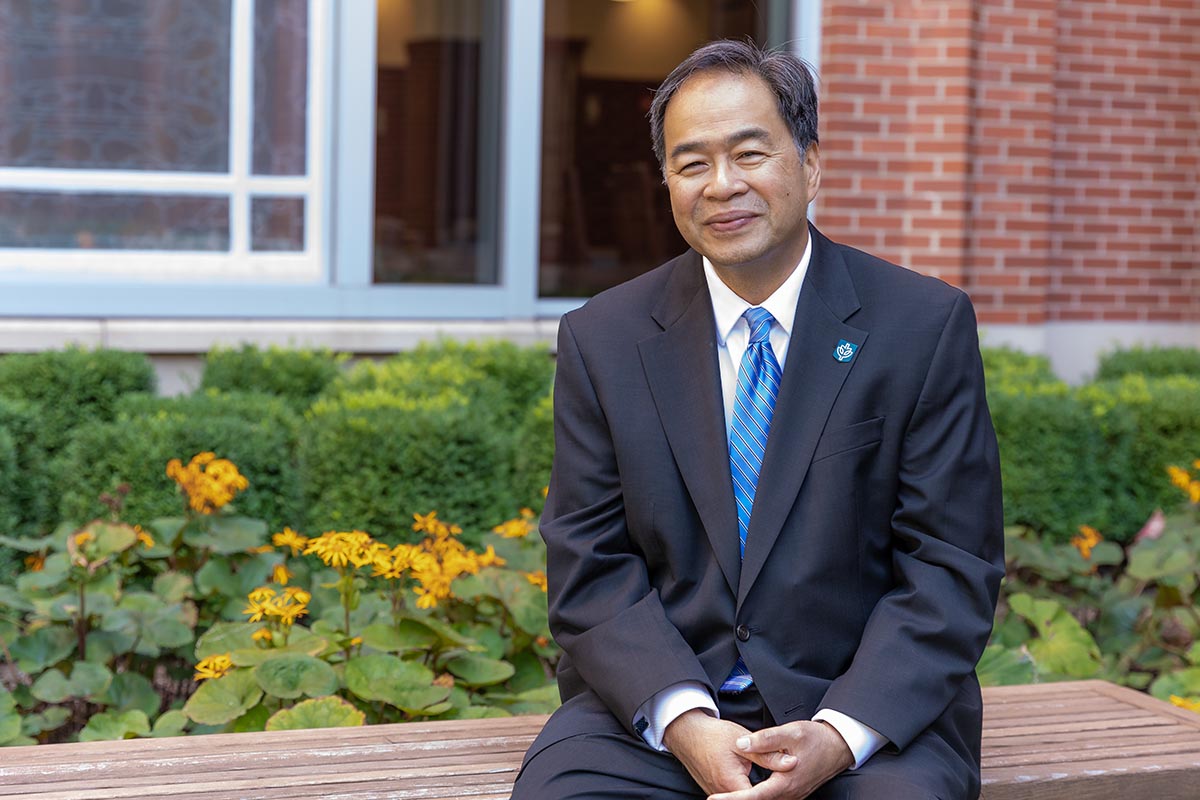 (DePaul University/Randall Spriggs)
(DePaul University/Randall Spriggs)During Alumni and Family Weekend last month, my wife Jo and I met a family from Corpus Christi, Texas, whose son was admitted to six other universities. I asked why he chose DePaul, and he said it was the campus visit that tipped the scale for him.
He liked the feel of Chicago and DePaul’s urban setting. Of course, we would not have been a contender if we didn’t have the academic program he wanted, but once that box was checked, he sought an environment where he would be comfortable, and DePaul delivered.
The grandmother of a student from San Antonio told me something similar. She said her granddaughter stepped on campus “and it felt like home.”
That’s how important the student experience is to our success. Students need to feel part of something, and they can quickly identify whether that sense of belonging and community is there or not. If we don’t provide it, students have many other options to find it.
As a university committed to drawing on diversity to enhance our learning and understanding, DePaul must fulfill the promise of a welcoming environment. We will achieve this goal when all of our students feel included and engaged.
A few weeks ago, I met with the Student Government Association and talked to a commuter student. He said it took a while for him to feel the sense of connection he was looking for at DePaul. His story underscores why we must strive to convey the Vincentian personalism that is a hallmark of DePaul and ensure it reaches all of our students, no matter where they live.
I asked the SGA representatives a variety of questions about why they chose DePaul. As always, everyone raised their hands when I asked if we had the academic program they wanted. But what was most fascinating to me was that upon their arrival on campus the students were not aware of all the support services DePaul offers to help them succeed. Only after they utilized the services, and they began to benefit from them, did they understand the scope of resources available.
How do we inform students about these services and encourage them to use these resources earlier?
When it happens, like it did for a McNair fellow I spoke to recently, we see the distinctive DePaul experience at work. This student had recently graduated and chose not to pursue a PhD for which the McNair program prepared her. She chose instead to move to Arizona, near the Mexico border and work with Central American refugees. She wanted to immediately give back in a meaningful way.
That’s the beauty of connecting students to DePaul, and to our mission. We need to reach every student in this way, and it needs to start the first time they encounter DePaul. Our future depends on it.